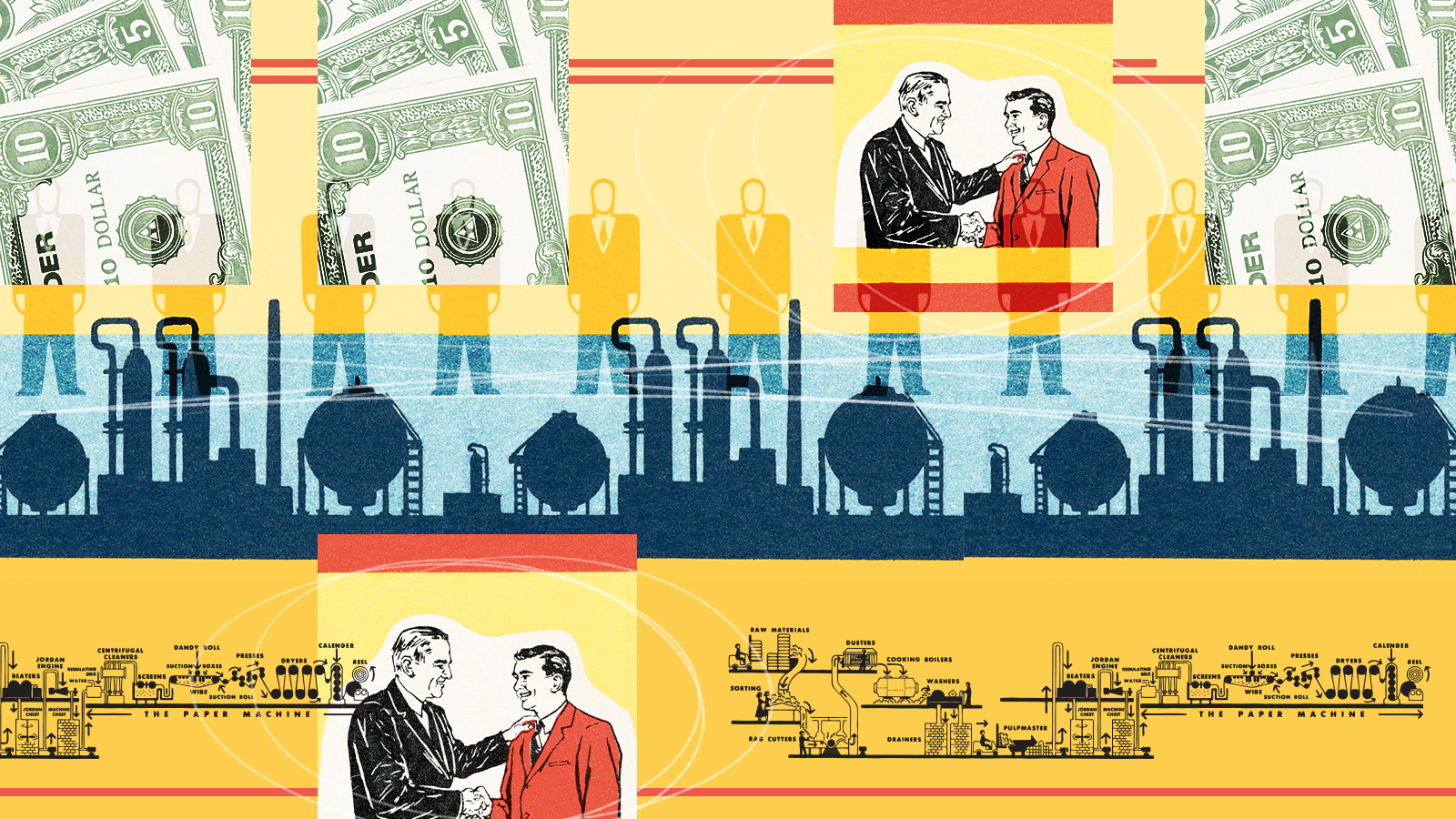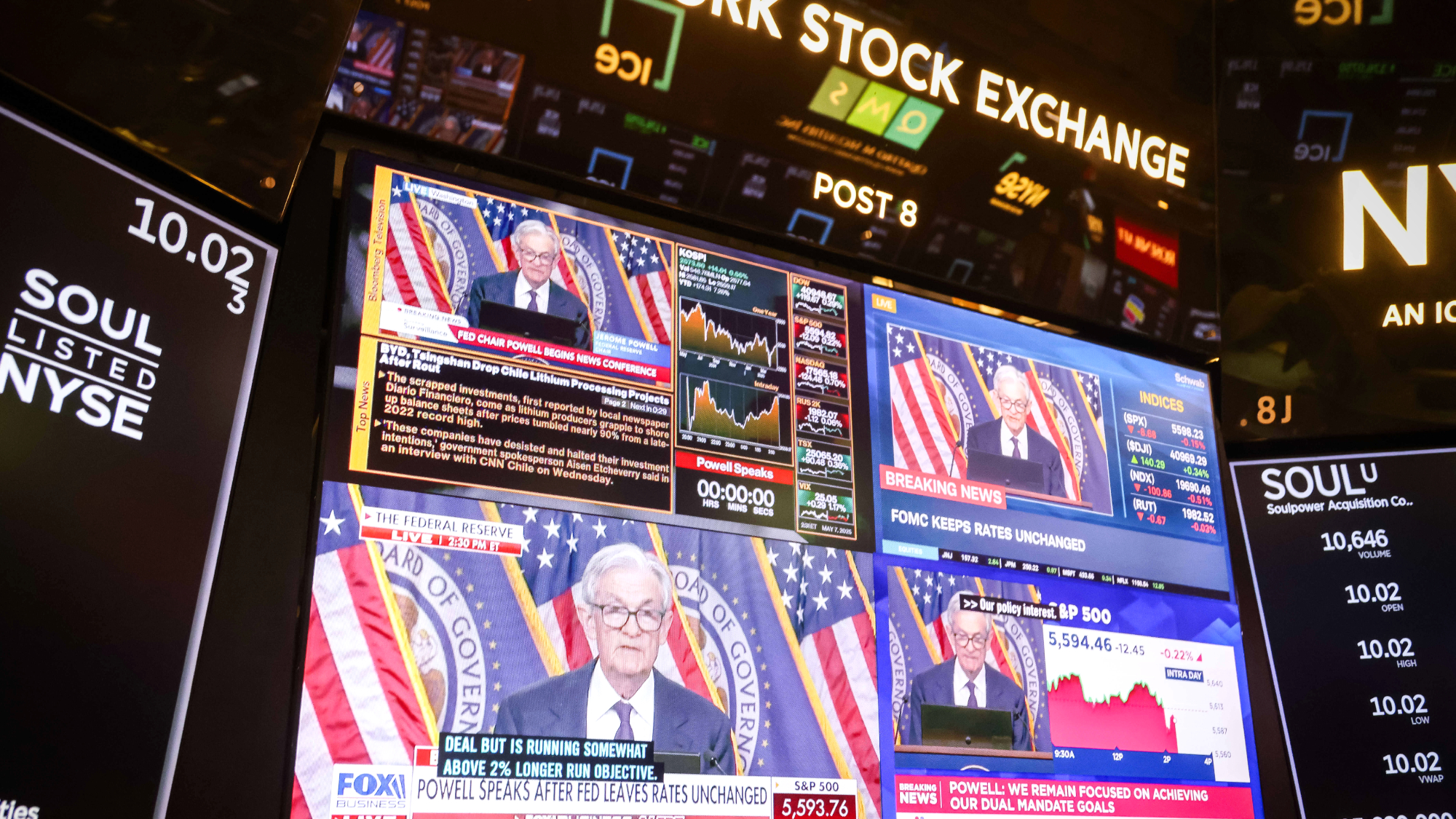Time for businesses to humanize — or die
The hottest new employee benefit is basic human decency


A free daily email with the biggest news stories of the day – and the best features from TheWeek.com
You are now subscribed
Your newsletter sign-up was successful
If you've been to a restaurant or retail store recently, chances are good you've seen a "help wanted" sign or an apology for the business being short-staffed. The dread labor shortage grinds on.
That means it's crunch time for many low-productivity businesses that have scraped along by cheaping out on investment and underpaying their workers. These companies need to reform and humanize their policies — or lose to competitors who know how to attract, train, and retain quality staff.
Now, when talking about the tight labor market, it's important to be clear this isn't a universal phenomenon. At The Washington Post, Heather Long and Eli Rosenberg write about the substantial population of people who are desperately applying for hundreds of jobs, yet finding little interest. Despite employers' whining about lack of workers, many are still being choosy, rejecting people deemed too young, too old, too uneducated, too inexperienced, and so forth.
The Week
Escape your echo chamber. Get the facts behind the news, plus analysis from multiple perspectives.

Sign up for The Week's Free Newsletters
From our morning news briefing to a weekly Good News Newsletter, get the best of The Week delivered directly to your inbox.
From our morning news briefing to a weekly Good News Newsletter, get the best of The Week delivered directly to your inbox.
During the decade of chronically high unemployment after 2008, employers got accustomed to having an ocean of desperate unemployed people at their beck and call. That recent history has created some lazy habits. "Complicating the job search for the long-term unemployed is the explosion of companies using robots to sort through job applicants, at least in the first round," Long and Rosenberg write. "This highly automated process excludes anyone who is not a near-perfect fit on paper." As I previously discussed, employers will have to remember how to coax people into work with better pay and benefits, and stop dismissing people out of hand because they have a gap in their resume or don't use the right keywords in an application form.
But some employers may have to rethink their entire production model if they want to survive. For instance, as Alex Press writes at Jacobin, business owners are bizarrely resistant to the idea of letting workers, like cashiers, sit down, even when it wouldn't interfere with their jobs. That compulsively controlling attitude isn't uncommon (as most people who have ever worked at a restaurant can attest), and it needs to go.
Other employers need deeper restructuring still. For instance, agribusiness has long relied on immigrants, many undocumented, to fill fruit harvesting and meatpacking jobs because work conditions are so incredibly brutal. As Bloomberg's Joe Weisenthal points out, no matter how much you pay someone to butcher chickens, the job as currently structured is guaranteed to cause high rates of nerve damage in the hands and wrists, if not lost fingers. The same is true for picking strawberries and repetitive stress injuries and back pain, if not permanent disability.
Obviously, pay matters a great deal for those jobs too, but a job this horrible is one most reasonable people would never take if they could avoid it, no matter the compensation. If this tight labor market persists — and presently I see every reason to think it will — farmers and meatpackers would be wise to adjust their production practice. That most obviously means slowing down the work, but also investing in injury prevention and automation.
A free daily email with the biggest news stories of the day – and the best features from TheWeek.com
So far, this is all stuff that Sen. Bernie Sanders (I-Vt.) would love. But there are sound business reasons to invest in one's workforce, too, especially right now. For example, at Bloomberg, Thomas Black draws an instructive comparison between UPS, which is unionized, and FedEx, which is not. UPS pays the best salaries in the industry, and also has good benefits and reasonable hours. FedEx, by contrast, uses contract workers for most of its last-mile deliveries — part of a classic exploitative business model that pushes as much cost and risk onto workers as possible.
The difference is beneficial for the whole company. In fact, UPS brass ought to write a thank-you note to the Teamsters who helped create their style of operation through organizing and massive strikes. High salaries, good benefits, and decent work conditions have helped UPS retain its workforce and deal with pandemic-related labor problems and enormous delivery volumes. Because of that high labor investment, UPS is collecting big profits and retaining a 95 percent on-time delivery average, while FedEx is hemorrhaging contract workers — losing $450 million and counting on labor issues — while pushing on-time delivery down to 84 percent and denting its stock price.
It turns out workers are the single most critical part of any serious business — not owners, not managers, not property, and not machinery. Labor is simply a precondition for any enterprise getting off the ground in the first place. "[W]ithout our brain and muscle not a single wheel can turn," as the song goes.
The huge pool of unemployed workers created by the poor policy response to the Great Recession obscured this fact and enabled a lot of businesses to make money by profligate and wasteful overuse of labor (often by hiding behind a high-tech veneer). That illusion can no longer hold.
From Tyson to FedEx, it's time for these laggard, skinflint executives to get with the program. Make your companies places where people actually want to work or be out-competed by somebody who can.
Ryan Cooper is a national correspondent at TheWeek.com. His work has appeared in the Washington Monthly, The New Republic, and the Washington Post.
-
 What is the endgame in the DHS shutdown?
What is the endgame in the DHS shutdown?Today’s Big Question Democrats want to rein in ICE’s immigration crackdown
-
 ‘Poor time management isn’t just an inconvenience’
‘Poor time management isn’t just an inconvenience’Instant Opinion Opinion, comment and editorials of the day
-
 Bad Bunny’s Super Bowl: A win for unity
Bad Bunny’s Super Bowl: A win for unityFeature The global superstar's halftime show was a celebration for everyone to enjoy
-
 The billionaires’ wealth tax: a catastrophe for California?
The billionaires’ wealth tax: a catastrophe for California?Talking Point Peter Thiel and Larry Page preparing to change state residency
-
 Bari Weiss’ ‘60 Minutes’ scandal is about more than one report
Bari Weiss’ ‘60 Minutes’ scandal is about more than one reportIN THE SPOTLIGHT By blocking an approved segment on a controversial prison holding US deportees in El Salvador, the editor-in-chief of CBS News has become the main story
-
 Has Zohran Mamdani shown the Democrats how to win again?
Has Zohran Mamdani shown the Democrats how to win again?Today’s Big Question New York City mayoral election touted as victory for left-wing populists but moderate centrist wins elsewhere present more complex path for Democratic Party
-
 Millions turn out for anti-Trump ‘No Kings’ rallies
Millions turn out for anti-Trump ‘No Kings’ ralliesSpeed Read An estimated 7 million people participated, 2 million more than at the first ‘No Kings’ protest in June
-
 Ghislaine Maxwell: angling for a Trump pardon
Ghislaine Maxwell: angling for a Trump pardonTalking Point Convicted sex trafficker's testimony could shed new light on president's links to Jeffrey Epstein
-
 The last words and final moments of 40 presidents
The last words and final moments of 40 presidentsThe Explainer Some are eloquent quotes worthy of the holders of the highest office in the nation, and others... aren't
-
 Fed leaves rates unchanged as Powell warns on tariffs
Fed leaves rates unchanged as Powell warns on tariffsspeed read The Federal Reserve says the risks of higher inflation and unemployment are increasing under Trump's tariffs
-
 The JFK files: the truth at last?
The JFK files: the truth at last?In The Spotlight More than 64,000 previously classified documents relating the 1963 assassination of John F. Kennedy have been released by the Trump administration
